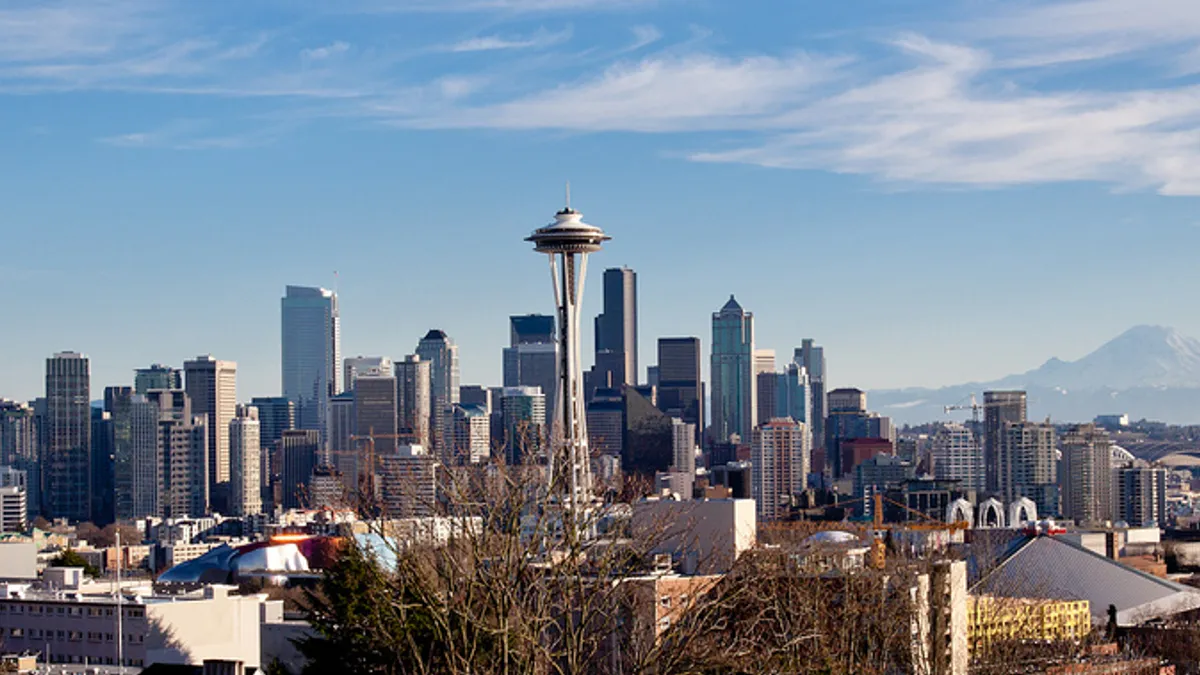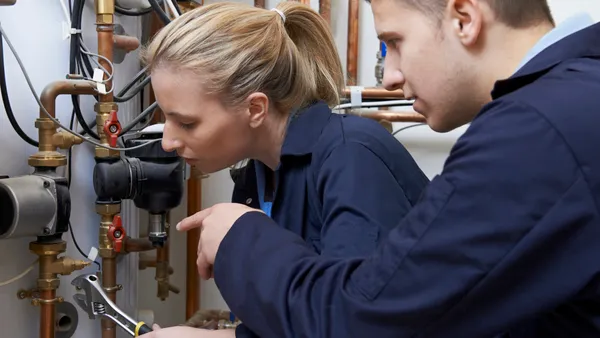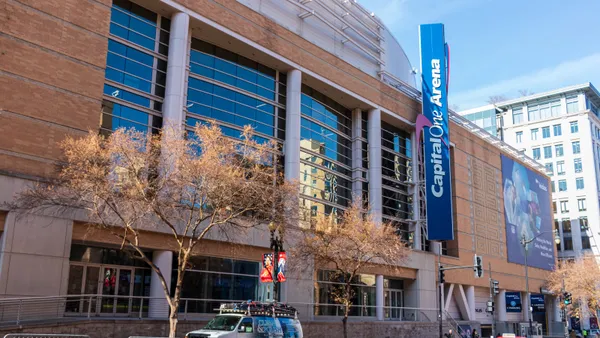CORRECTION: This article has been updated to clarify that the Washington State Transportation Commission is implementing the simulated mileage fee.
Dive Brief:
- The Washington State Transportation Commission is implementing a simulated mileage fee for 2,000 volunteer drivers to explore new transportation infrastructure funding options as current revenue sources like the gas tax become less reliable, For Construction Pros reported.
- Construction costs in the state are expected to rise 2.6% in 2018 while revenue from its gas tax is forecast to grow less than 1%. The typical car in the state gets 20.5 miles to the gallon, but efficiency improvements should see that average rise to 35 miles per gallon by 2035, reducing gas-tax revenue.
- Drivers in the pilot will be assessed a rate of 2.4 cents per mile driven, on par with the current gas tax for a car getting average mileage.
Dive Insight:
Nearby, Oregon has already rolled out a pay-per-mile fee to some drivers in the state. Participants pay 1.5 cents per mile driven and in return get credits toward the state’s fuel tax. Mileage and fuel efficiency is measured by a device connected to the inside of the car. The program is currently limited to 5,000 cars and light-duty trucks.
Utah has also expressed interest in a similar program. And the idea is gaining traction on the East Coast, too.
Last month, transportation agencies there announced plans for a three-month pilot of a per-mile driver charge on 50 vehicles. Their goal is to determine whether such a fee could ever supplant the federal gas tax as the primary funding source for highway construction. CH2M Hill (which was recently acquired by Jacobs Engineering) will oversee the program, which also aims to educate drivers on the fee's purpose, address privacy concerns and iron out payment transfers from state to state.
Lawmakers are expected to weigh mileage fees, a gas-tax hike, private sector investment and other methods of funding infrastructure at the state and federal levels as part of the Trump administration’s proposed $1 trillion public works spend. The American Society of Civil Engineers estimates there will be a $4.6 trillion backlog of such work by 2025.
Recent polling has found Americans saying they would support higher taxes, tolls and other driving-related fees if they could see improvements in their community’s infrastructure as a result. But whether they’ll be so willing to pay more at the pump — or, in the case of Washington and Oregon, on the road — has yet to be seen.













